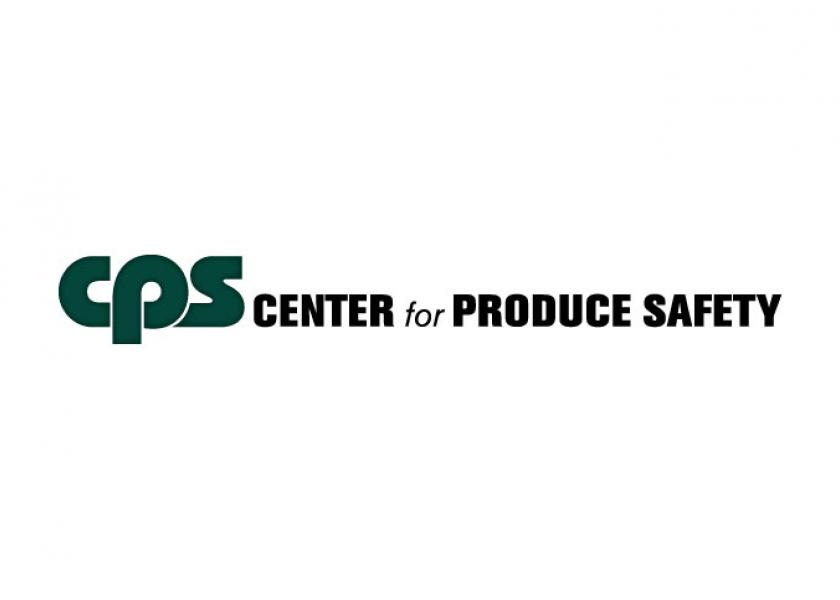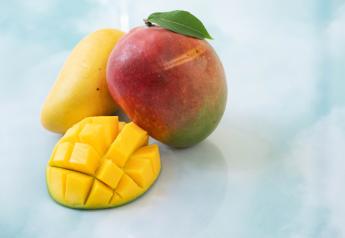Virtual CPS Research Symposium draws in bigger audience

The inability to hold the Center for Produce Safety’s annual CPS Research Symposium in its traditional form has opened up new opportunities for greater participation, says Bonnie Fernandez-Fenaroli, executive director of CPS.
This year, the CPS Research Symposium will feature a series of five weekly web seminars during June and July, starting June 23.
Over the years, the Center for Produce Safety has funded 172 research projects in five countries, and the some of the fruit of that research will part of the 2020 Research Symposium.
Registration for all virtual seminars is available here.
“It is incredibly exciting,” Fernandez-Fenaroli said. “We have about 1,100 participants signed up so far, and I believe our last count was close to 40 countries.”
The five weekly events will be 90 minutes each. If participants want to ask more questions than can be answered in the 90-minute web seminars, she said moderators and scientists are staying on for at least an additional 30 minutes to extend the question and answer session.
The virtual event is attracting a much broader audience than the “on-site” version, helped by the fact that registration is free. Fernandez-Fenaroli praised the sponsors of the event, who quickly adjusted to embrace the online web events when the in-person symposium was impossible.
The first session is set for June 23, and that will be moderated by Suresh De Costa, director of food safety for Lipman Family Farms.
Topics covered at that event include managing listeria in fresh produce, exploring the relationship between product testing and risk and listeria growth and survival on fruit and vegetable surfaces.
The June 30 web seminar will be moderated by Jennifer McEntire, vice president of food safety for the United Fresh Produce Association.
That seminar will look at effects of storage conditions for “nontraditional” fresh-cut salad ingredients in relation to Listeria monocytogenes development, strategies for improved cleaning and sanitation of plastic bins and preventive sanitation measures for the elimination of Listeria monocytogenes biofilms in critical postharvest harboring sites.
For the July 7 web event, De Ann Davis, food safety director of Commercial Food Sanitation, will moderate a panel looking at topics including cyclospora prevalence in irrigation water in fresh produce growing regions in Arizona, and effectiveness of vegetative buffer zones to reduce the risk of pathogenic E. coli and salmonella transmission from animal operations.
For the July 14 session, Trevor Suslow, vice president of produce safety for the Produce Marketing Association, will moderate a session with research presented on listeria whole genome sequencing, viral indicators in the produce supply chain and listeria exclusion microorganism in biological soil amendments.
The July 21 will be moderated by Joan Rosen, principal for JC Rosen Resources, and will cover research topics including FSMA agricultural-water die-off compliance provisions and valid corrective actions for multiple harvest shade-house production systems.
“I’m really very, very appreciative to the moderators this year,” said Fernandez-Fenaroli.
“We always have great moderators, and I do believe that for this symposium series, we have really the right moderators to get the most out of the presentations and help the audience translate the research.”
One attraction of the symposium is that the whole supply chain is in attendance, in addition to regulatory officials and food safety scientists.
“It is a very safe atmosphere; we’re not selling anything except that we are sharing information on how we collectively can do better,” she said.
Registration is free and open up to 24 hours before each week’s symposium, she said.
Looking ahead, CPS-funded research is ongoing, though COVID-19 has changed some target dates for completion.
“Shelter in place delayed some of our research projects due to universities closing and scientists (and staff) not being able to access laboratories and having restrictions on travel for field work,” Fernandez-Fenaroli said.
Even so, she said many CPS scientists have managed to shift data analysis to home computers and that will make up some time.
Related:
Indoor growers discuss food safety concerns
LGMA charts course to achieve food safety goals
Clear Labs receives food safety innovation award







